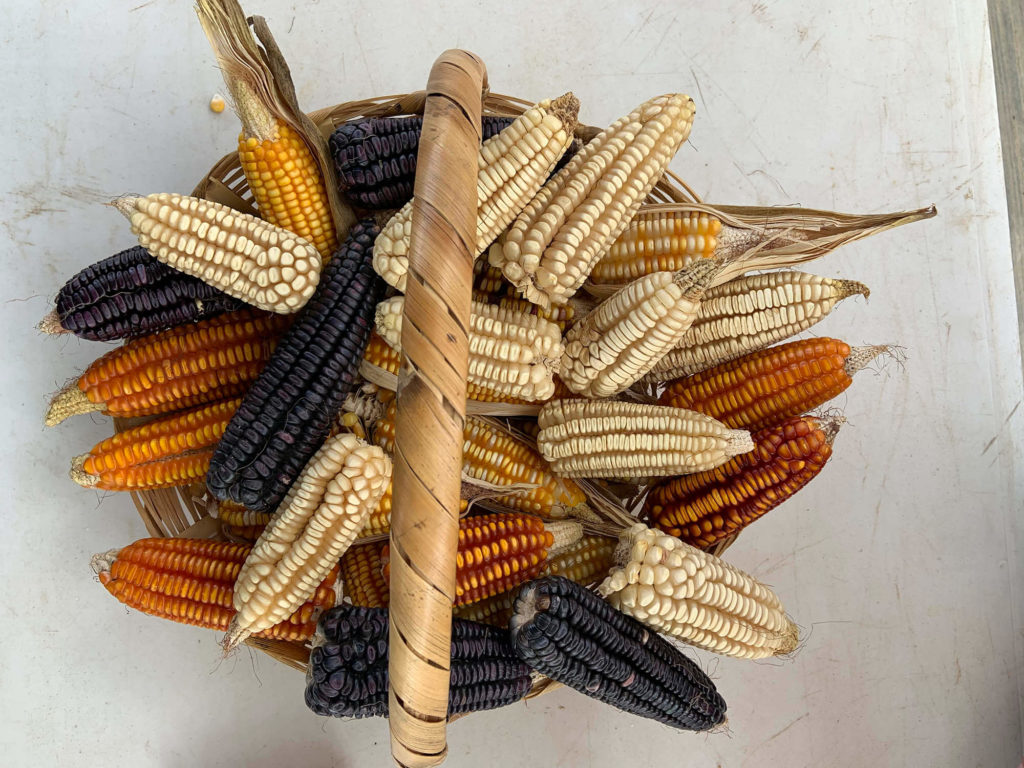Catalyzing Resilient Seed Systems in Mexico during COVID-19
In southern Mexico, the loss of native seed varieties is a crisis undermining indigenous communities and cultures. We at Groundswell International are facilitating a collaborative action-learning process with eight local NGOs to strengthen farmer’s capacities to recover, improve and distribute quality local corn, beans, wheat, and amaranth seeds. This reverses the loss of biodiversity and improves food production and resilience to climate change.

Seed production is essential, not only to conserve biodiversity, but also for rural communities’ food security. This is broadly involved in the community culture of all three regions (Campeche, Chiapas and Oaxaca) where the project is being implemented.
The initiative involves over 1,150 families spread across 53 communities in the states of Campeche, Chiapas and Oaxaca. Together the organizations and communities have established 38 plots for participatory seed improvement, and 123 plots to produce and distribute 92 different native varieties of corn, beans, wheat and amaranth.
In 2020 they produced enough seed to sow 133 acres of corn (2,160 lbs. of seed); 103 acres of wheat (7,385 lbs.); and 463 acres of beans (6,195 lbs.).
The pandemic has only exposed the depths of social inequality and the extensive damage we have caused to the ecosystem, forming a breeding ground facilitating disease. Undoubtedly COVID-19 has highlighted human vulnerability.
The pandemic has also been an opportunity to innovate and use other communication tools to discuss and review the project’s progress together with farmers. One thing that seems very important is that, despite our low presence in communities during this year, there are other people interested in participating in the project.
“In spite of COVID 19 restrictions, the organizations were able to organize seed fairs, community events, and seed exchanges,” said program coordinator Edwin Escoto. “We saw the creative work of communities to ensure their own food production during the crisis, and many young people are returning to communities to farm. We need to integrate the youth to take this work forward.”
